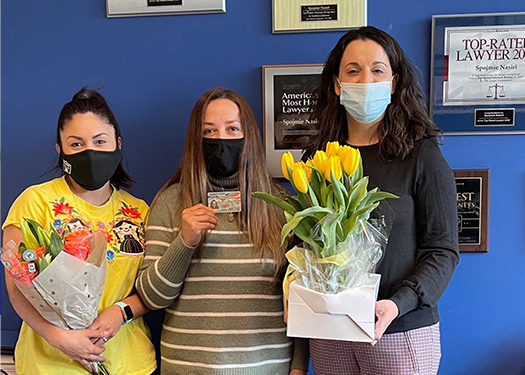The Violence Against Women Act (VAWA) allows immigrants abused by a family member to seek immigration relief based on the abusive relative’s immigration status, without having to involve that abusive family member in the immigration process. VAWA is meant to prevent individuals from staying in abusive relationships solely because the abuser holds the key to their ability to obtain lawful status and may be exerting that power as part of their abuse and control. Instead of involving the abuser, someone who qualifies for VAWA can “self-petition” by filing Form I-360. VAWA can benefit people regardless of their gender and includes abused children, parents, and spouses.
Under the federal Violence Against Women Act (VAWA), you may be eligible to become a lawful permanent resident (get a Green Card) if you are the victim of battery or extreme cruelty committed by:
You may self-petition under VAWA by filing a Petition for Amerasian, Widow(er), or Special Immigrant (Form I-360) without your abusive family member’s knowledge or consent. A person who files a VAWA self-petition is generally known as a VAWA self-petitioner. If your self-petition is approved and you meet other eligibility requirements, you may be eligible to apply to become a lawful permanent resident. For more information, see Battered Spouse, Children & Parents and VAWA Questions and Answers.
In order to be eligible for a Green Card as a VAWA self-petitioner, you must meet the following requirements:
You are eligible to receive an immigrant visa based on:
If you are currently in the United States and you meet certain other requirements (such as an immigrant visa is immediately available to you), you may file Form I-485, Application to Register Permanent Residence or Adjust Status to apply for a Green Card without leaving the country.
You must have an approved Form I-360 in order to qualify for a Green Card. If a visa is immediately available to you, you do not have to wait until your Form I-360 is approved to file Form I-485.
If you are a VAWA self-petitioner seeking to adjust status as an immediate relative, you may file Form I-485 at any time because visas are always immediately available for immediate relatives. If you are a VAWA self-petitioner seeking to adjust under a family-based preference category, you may need to wait for a visa to become available.
If a visa is immediately available, you may file your Form I-485:
For information on visa availability, see Visa Availability and Priority Dates, Adjustment of Status Filing Charts, and the Department of State website to view the Visa Bulletin.
If you already have a pending Form I-485 based on an approved Form I-130, Petition for Alien Relative that the abusive family member filed for you, you may request to convert your Form I-485 so that it is based on your VAWA self-petition. To make this request, you must notify the USCIS field office adjudicating the pending Form I-485 that you have filed a VAWA self-petition or that you will do so within 30 days. You should also provide the USCIS field office with a safe address where we can mail all future correspondence to you.
If you do not submit evidence that you filed a VAWA self-petition within 30 days of requesting to convert your Form I-485, USCIS may make a decision on your pending application based on the original Form I-130 filed by the abusive family member. Otherwise, if USCIS approves your VAWA self-petition, your application to adjust status will be based on the VAWA self-petition instead of the original Form I-130.If you are outside the United States, please see the Consular Processing page for information about how to apply for a Green Card as a VAWA self-petitioner.
If you need legal assistance regarding filing a VAWA petition, call the Law Office of Spojmie Nasiri, PC. Our law firm will provide you with the top-quality representation you expect and the results you need.
